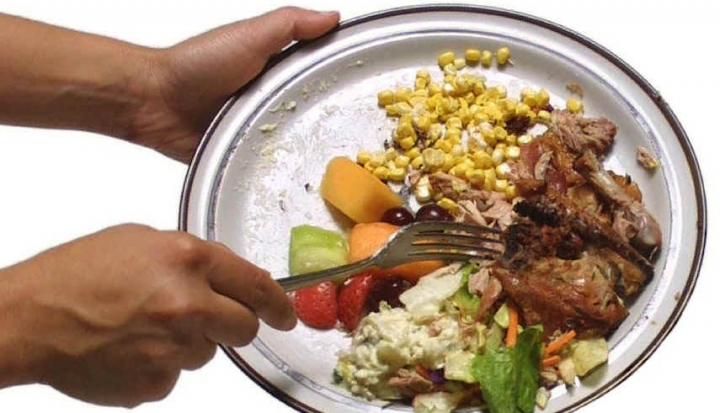When I was a freshman in college, Loyola University Chicago decided that in order to continue their path toward becoming an environmentally sustainable campus they were going to remove food trays in all of the dining halls. By the simple act of removing trays, Loyola reduced its food waste by 25 to 30 percent. Without having to clean each tray after a meal, about a half of a gallon of water was saved—which annually added up to roughly 500 gallons. What started out as an inconvenience to us students—heaven forbid we had to leave our table full of friends to get a second plate of food—slowly extended into something far beyond our little campus.
In a report from the United Nations’ Food and Agriculture Organization (FAO), nearly 870 million people—or one out of every eight—suffered from malnutrition between 2010 and 2012. An estimated 85 percent of those people live in developing countries and lack many other essentials for survival. This situation can be drastically changed if we only focus on what is happening around the world.
One of the many factors that increase the amount of people going hungry each day is the vast amount of food that is wasted every year. About 2.86 trillion pounds—or one third of what is produced—goes to waste due to improper storage, unproductive harvesting, inefficient processing, and many other factors (like college students piling more food onto their trays than they can eat). Many tons go to waste because they simply don’t look good enough to sell. Others rot because a customer buys “two for the price of one” and the second spoils before it is used. Wasted food also leads to the depletion of many resources that are already in low supply. These include water, land, energy, labor, and capital. Waste also produces greenhouse gas emissions, which contribute to global warming and climate change.
Today is World Environment Day. With an international focus on food waste, many organizations are spreading the word so that people become more aware of the problem and can learn easy ways to fix it. One group that is heavily involved is Food Tank: The Food Think Tank. They have provided a list of 10 ways that consumers can easily start combatting food waste in their homes.
As we go into World Environment Day, let us remember that whatever we do, even as individuals, has a drastic impact on the world around us. It can be as small as buying only what we can eat before it spoils or donating extra food to charity organizations. It can be as big as helping your business or university to eliminate trays. In the wise words of Margaret Mead, “Never doubt that a small group of thoughtful, committed, citizens can change the world. Indeed, it is the only thing that ever has.”








